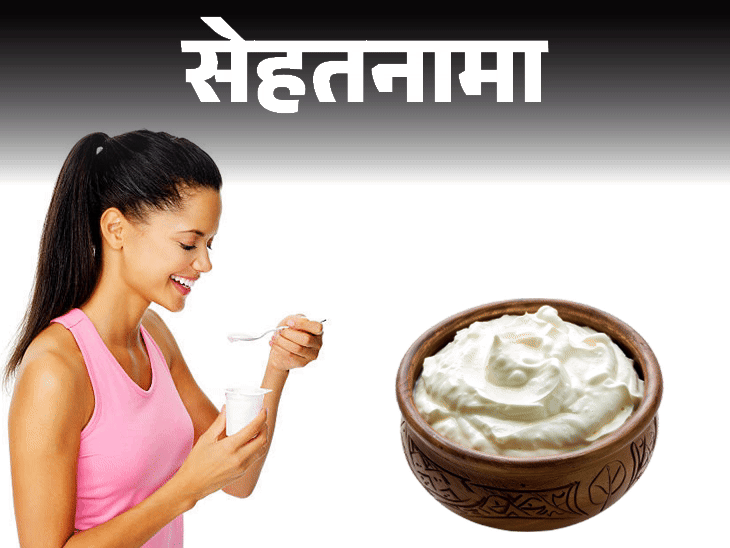Quail It is a beautiful gift given by nature to humans. It is a health treasure. It contains fiber, protein, sugar and fat. Apart from this, many vitamins and minerals are also available.
There is controversy regarding the history of curd. Much of the population believes that it has been consumed in the Indian subcontinent for around 5,000 years. It is mentioned in mythology and stories of Lord Krishna.
While Bulgaria has its own claims regarding its history in Europe. Bulgarians say it is as old as the history of their country. About 4,000 years ago, a nomadic tribe had a surplus of milk at night, which turned into curds in the morning. When we ate it the next day, it was very tasty. The tradition of eating frozen curds began here. This place was Bulgaria itself. Currently, it is said in Bulgaria that curd is added to every dish or served as a staple on the plate.
Apart from its history, curd not only enhances the taste of our food, but it is also very beneficial for health. It is very important for our digestive system, immune system, weight management and bone strength. Apart from this, it also keeps our heart health healthy.
so today’medical certificate“I’m going to talk about the superfood curd. You will also learn that-
What is its nutritional value? What vitamins and minerals are present in curd? How is curd beneficial for our health? Which people should not eat curd?
Before knowing the amazing health benefits of curd, let us know some interesting and important facts about it.
What is the nutritional value of curd?
According to the U.S. Department of Agriculture, if 100 grams of curd is made from whole milk, it contains about 61 calories, of which about 88 percent is water. It also contains proteins, carbohydrates, sugar and fats. Let’s see their quantity in the graph.
Even though curd is used as a staple food, its nutritional value is surprising. It contains almost all the essential nutrition, minerals and vitamins.
What vitamins and minerals are present in curd?
Dr Anu Aggarwal, a senior nutritionist from Delhi and founder of ‘OneDietToday’, says that curd is actually a form of spoiled milk and yet, it is much more beneficial than milk. It is called a superfood because of its amazing nutritional value and the vitamins and minerals it contains. It contains almost all the essential minerals for our body.
Eating curd has many health benefits
Dr Anu says people generally know that eating curd aids digestion. The good bacteria present increases the number of good bacteria present in our gut. This not only improves the digestive system but also strengthens the immune system. It is also important for the health of our teeth and bones. Apart from this, what are the other benefits of eating curd, see in the chart.
Let us understand some of the points given in the chart in detail.
Necessary for healthy teeth and bones
According to a study published in the National Library of Medicine, curd contains abundant amounts of calcium, a mineral essential for healthy teeth and bones. If someone eats a cup of curd every day, then 49% of their daily calcium requirement will be met.
Risk of heart disease is reduced
According to the US Department of Agriculture, curd is rich in vitamin B and in particular vitamins B-12 and B-2, i.e. riboflavin. These two vitamins may protect against heart disease and certain neural tube birth defects.
Blood pressure remains under control
According to the U.S. Department of Agriculture, one cup of yogurt per day provides 28% of our daily needs for phosphorus, 10% for magnesium, and 12% for potassium. These minerals are essential to many important biological processes in our body. With their help, blood pressure remains balanced and metabolism improves. It is also important for bone health.
Strengthens the immune system
Curd also contains vitamin D. According to a study published in the National Library of Medicine, curd strengthens our bones and immune system. Apart from this, it also maintains heart health. This reduces the risk of many illnesses like depression.
Help with weight management
Curd contains an abundant amount of protein. This prevents us from being hungry again and again. Apart from this, consumption of curd improves the metabolic system. Both of these reasons contribute to weight management.
keeps the body hydrated
In addition to the enormous nutritional value and mineral richness of curd, its particularity is that it contains 66% water. Therefore, daily consumption of curd keeps the body hydrated.
Who should not consume curd?
Dr Ajay Kumar, assistant professor at Government Post Graduate Ayurveda College and Hospital, Varanasi, says that generally everyone can consume curd, but in some diseases it is not correct to consume it. So, see which people should not eat curd?
Arthritis patients, asthma patients, kidney patients, lactose intolerant patients, acidity patients, skin problems, helicorrhea patients
……………………………. Also read this news
Health Nama – Sugar cane is the sweetest gift offered by nature: beneficial against liver and kidney diseases.
According to research published in the National Library of Medicine, sugarcane juice, along with vitamins and minerals, also contains powerful antioxidants like phenols and flavonoids. It’s these antioxidants that make it so beneficial.

